When it comes to water in Italy, the common perception is that it’s safe to drink straight from the tap. However, if you observe the habits of locals, you’ll notice a different reality. Most people opt to purchase bottled water from supermarkets or have it delivered to their homes. When asked, they might attribute this to cultural preferences or a lack of trust in government regulations. But what’s the truth behind this discrepancy?
We tested the tap water in Lecce
To investigate, we conducted our own water test in Lecce, a city in the center of Puglia. Our findings revealed elevated levels of pH and nitrates in the tap water. It’s important to note that this data is based on a single sample point, so please conduct your own tests to verify. High pH levels can accelerate the corrosion of metal pipes, potentially impacting water quality. Additionally, nitrate contamination poses health risks, as it cannot be effectively removed by standard filtration methods, requiring reverse osmosis instead. While consuming water with these levels may not immediately cause illness, long-term exposure to nitrates, which are carcinogenic, could pose health concerns. Here is the water testing kit we used, and below are the results.
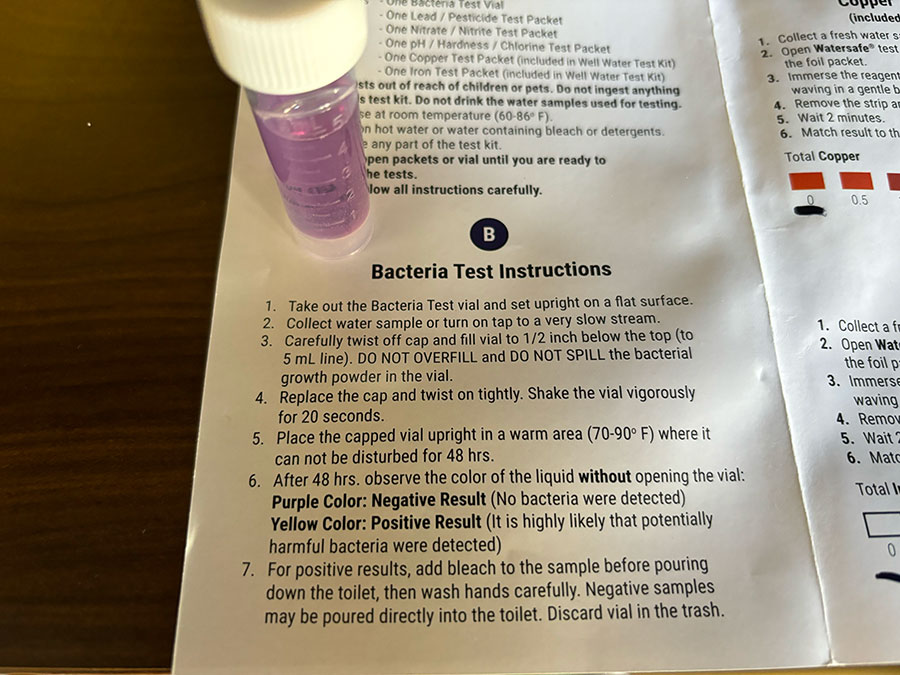
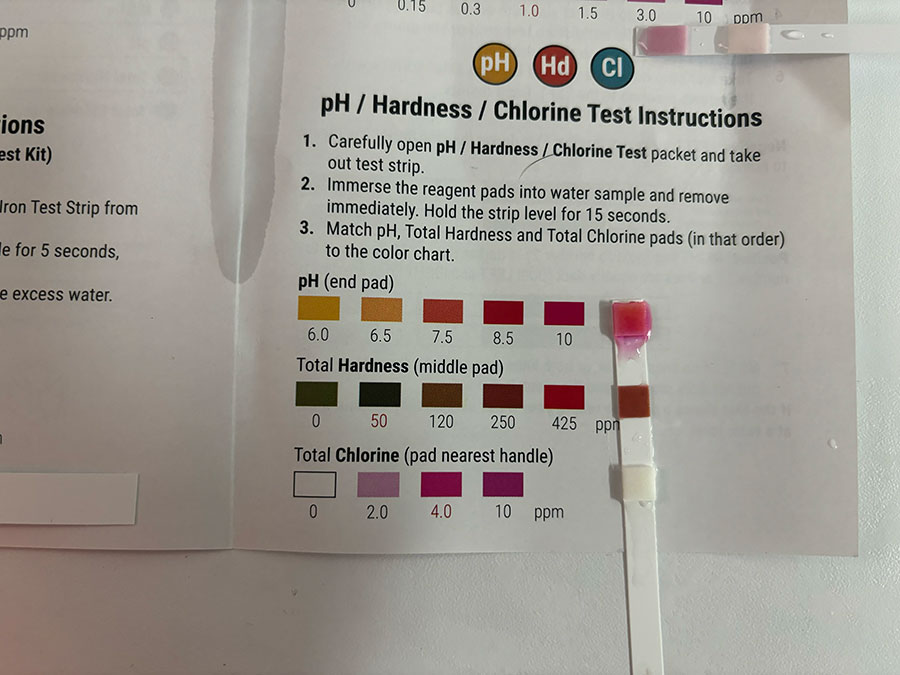
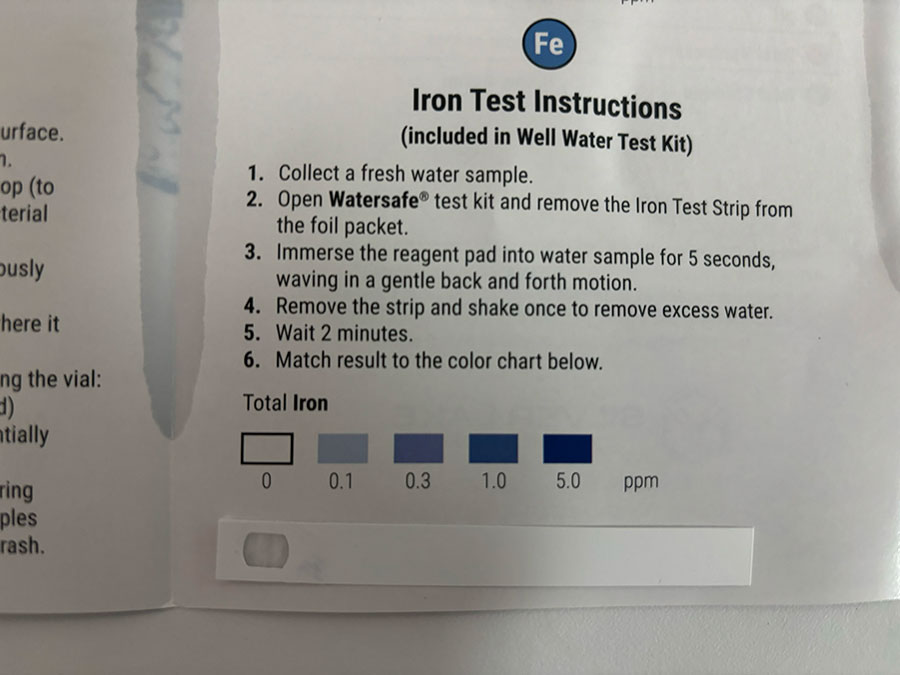

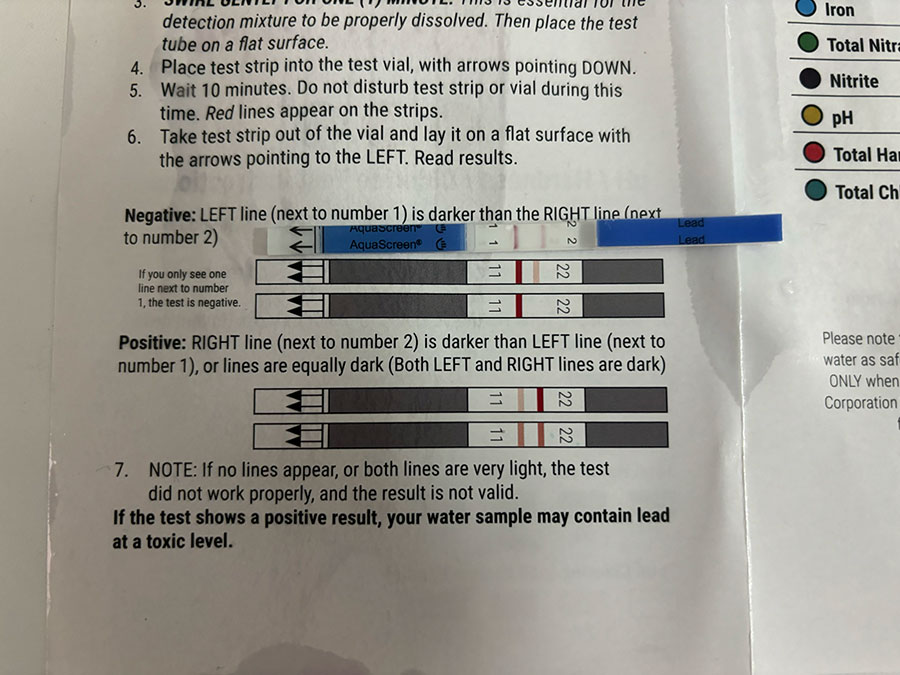
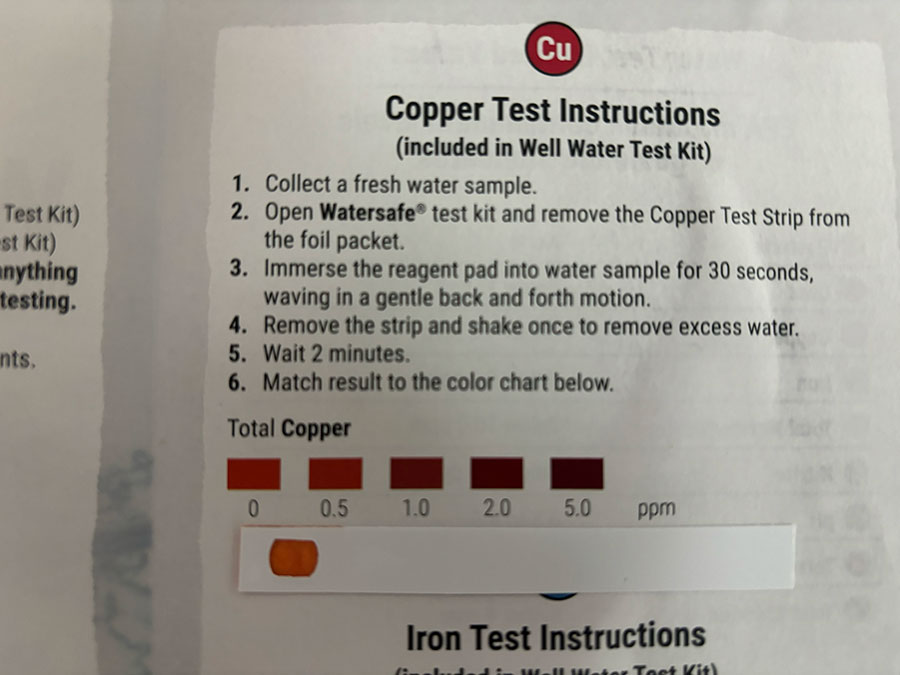
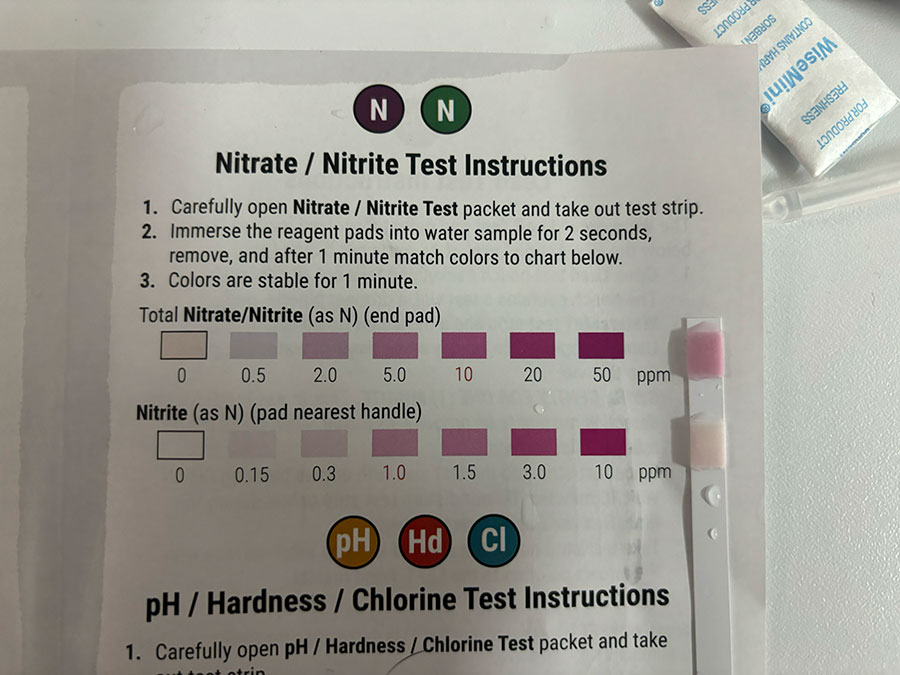
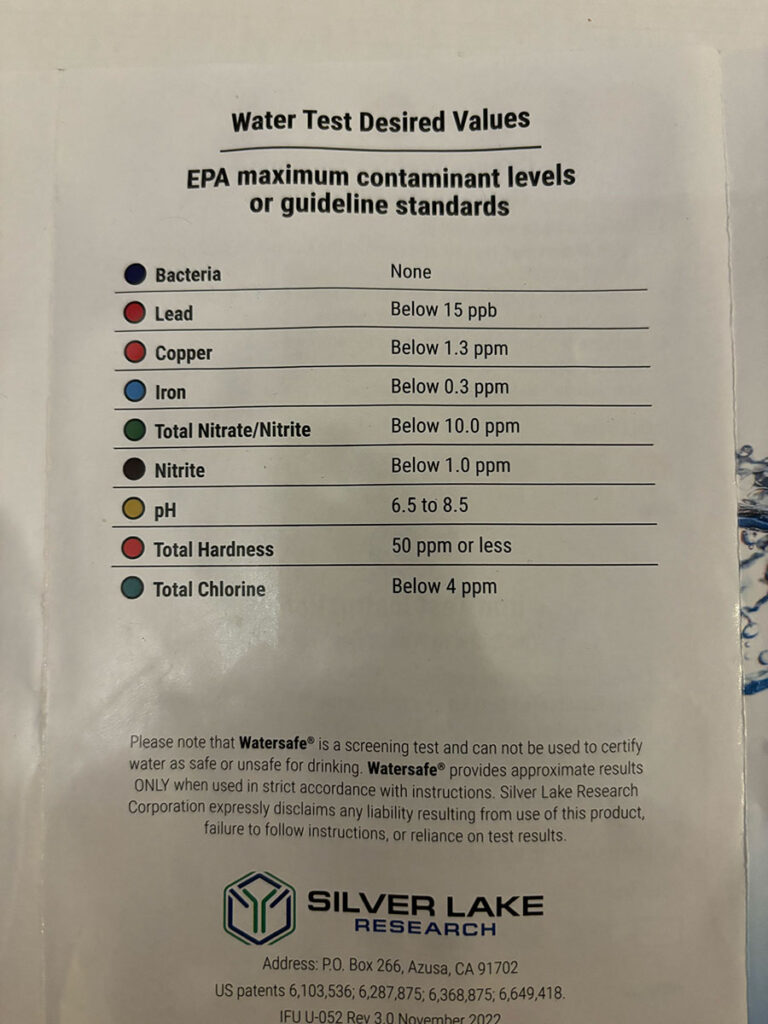
Comparing with the Data from AQP
Aquedotta Pugliese is the water provider for the region, and you can search the water quality data for each town on the site. The EPA Nitrate threshold is 10/ppm, where AQP sets it at 50/ppm. Our measured result of 5-10ppm is at the high end of EPA standard, while AQP reported 20ppm is 2 times over the EPA standard.
Here is the reported data from AQP for Lecce.
| Ammonio | <0,10 | 0,50 | mg/l NH4 |
| Antimonio | <1 | 10 | µg/l |
| Arsenico | 1 | 10 | µg/l As |
| Boro | 0,1 | 1,5 | mg/l |
| Bromato | <2 | 10 | µg/l |
| Cadmio | <1,0 | 5,0 | µg/l |
| Cloruri | 150 | 250 | mg/l Cl |
| Conducibilità | 900 | 2500 | µS/cm-1 a 20°C |
| Cromo | <1 | 50 | µg/l |
| Enterococchi intestinali | 0 | 0 | numero/100 ml |
| Escherichia coli | 0 | 0 | numero/100 ml |
| Fluoruri | 0,2 | 1,5 | mg/l F |
| Manganese | <10 | 50 | µg/l Mn |
| Mercurio | <0,1 | 1,0 | µg/l |
| Nichel | <1 | 20 | µg/l |
| Nitrati | 20 | 50 | mg/l NO3 |
| Nitriti | <0,10 | 0,50 | mg/l NO2 |
| pH | 7,6 | ≥6,5 e ≤9,5 | Unità di pH |
| Piombo | <1 | 10 | µg/l |
| Rame | <0,1 | 2,0 | mg/l |
| Selenio | <1 | 20 | µg/l |
| Sodio | 82 | 200 | mg/l Na |
| Solfati | 33 | 250 | mg/l SO4 |
| Vanadio | <10 | 140 | µg/l |
| Residuo fisso | 630 | n.d. | mg/l (*) |
| Durezza | 31 | n.d. | G.F. |
| Calcio | 83 | n.d. | mg/l Ca |
| Magnesio | 25 | n.d. | mg/l Mg |
| Potassio | 6 | n.d. | mg/l K |
| Bicarbonato | 278 | n.d. | mg/l HCO3 (*) |
| Cloro residuo | <0,1 | n.d. | mg/l Cl2 |
Nitrate contamination in Groundwater
Nitrate contamination is a prevalent issue in Salento, a subregion of Puglia, primarily due to agricultural practices. Studies on groundwater nitrate pollution in the area have highlighted concerning trends. The indicator kriging method has been utilized to assess spatial and temporal variations in nitrate concentrations, revealing areas of increased vulnerability to pollution. Despite changes in land use and fertilizer practices, nitrate levels continue to rise, surpassing EU standards for drinking water. The delayed leaching of nitrates from soil to groundwater emphasizes the necessity for ongoing monitoring and management strategies to safeguard water quality in vulnerable regions like Salento.
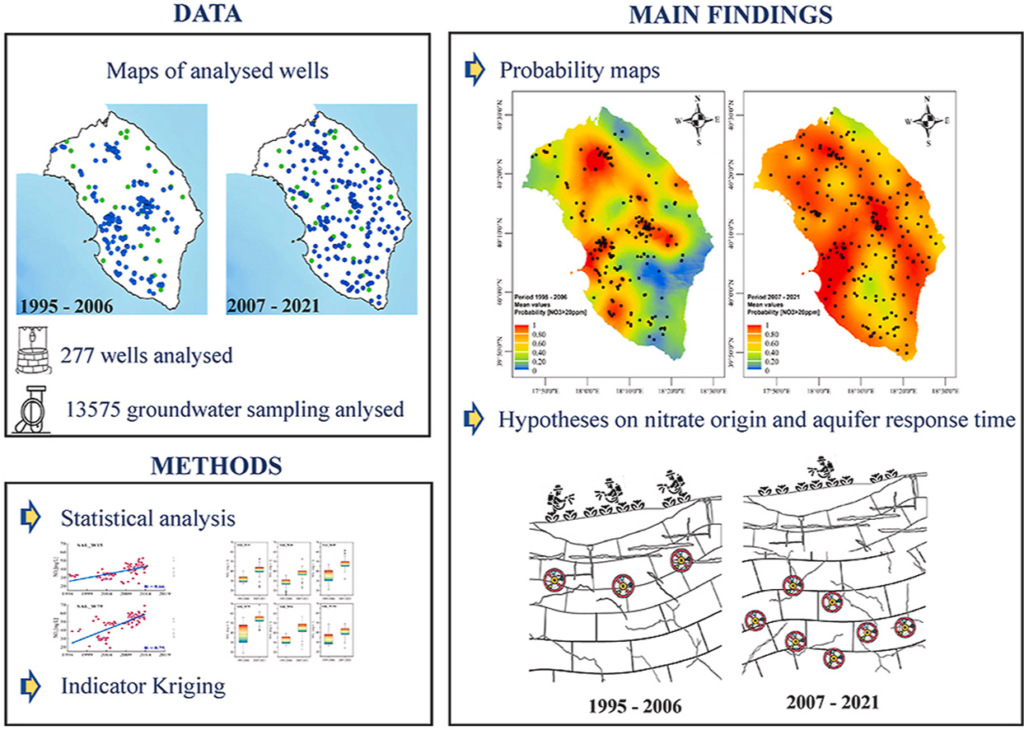
Will things improve?
The Puglia Region initiated a strategic environmental assessment (SEA) of its ‘nitrates action programme – third update’ through Decision No 1505/2020. This action was taken to comply with Directive 91/676/EEC, aimed at safeguarding waters against nitrate pollution from agricultural sources. Obligations include identifying areas vulnerable to nitrate pollution every four years and implementing action programs within one year in these areas. Despite approving revisions to nitrate vulnerable zones, the SEA for the updated action program remains ongoing since 2020. The delay prompts a question to the Commission regarding whether Puglia Region’s failure to promptly update the program constitutes inadequate protection of its land.
Conclusion
While tap water in Puglia may technically meet safety standards, it one of the cases where “do what the locals do” holds true. Investing in water filtration systems that can effectively remove nitrates may provide added peace of mind for those concerned about long-term health implications. Ultimately, staying informed and proactive is key to ensuring access to clean and safe drinking water in Puglia and beyond.
